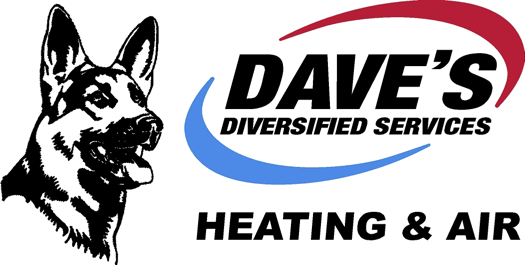
To combat increasing energy expenses and embrace sustainability, many homeowners are trying new methods to maintain comfort levels while using less energy. With help from the Inflation Reduction Act, federal tax credits are available for high efficiency HVAC equipment. These credits offer big savings, provided that homeowners select eligible equipment and submit the right paperwork.
If you’re trying to avoid a long process, we can share something that will help! Dave's Diversified Services hopes this guide will provide all the information necessary to take full advantage of HVAC tax credits this year. Here’s how.
Understanding the HVAC Tax Credits
These valuable tax credits for boosting your home’s energy efficiency are just one intended use of the recent Inflation Reduction Act. With the higher cost of energy making an impact, helping more homeowners upgrade their equipment is always beneficial. The main intention of these credits is to reduce the cost of installing high efficiency upgrades. Of particular importance are the Energy Efficiency Home Improvement Credit and the Residential Clean Energy Credit.
However, to be eligible for tax credits, you’ll need to fill out IRS Form 5695. Additionally, this form needs to be submitted during the same tax year the upgrades were installed, not bought.
Energy Efficiency Home Improvement Credit
Through 2032, the Energy Efficiency Home Improvement credit empowers homeowners by offsetting up to $3,200 every year for energy-efficient home upgrades. This amounts to 30% of the total project’s cost. Keep in mind that in order to get back the maximum amount, it involves making different investments. For example, you’ll save up to $2,000 for high efficiency heat pump systems. This can be combined with the remaining $1,200 in credits for other eligible upgrades made within the tax year.
While new heat pump installation projects are a key target for this incentive, other HVAC upgrades like efficient furnaces and air conditioners also qualify. You’ll need to confirm the make and model’s energy efficiency rating is sufficient to qualify.
Exploring the Residential Clean Energy Credit
The Residential Clean Energy Credit offers 30% savings on a variety of residential clean energy efficiency projects. Eligibility is only extended to homeowners looking for new clean energy solutions for their home. While the Home Improvement Credit works primarily with utilities and HVAC systems, this credit targets renewable energy sources like solar and wind energy.
Some key details of this tax credit include the requirement that installation must occur between 2022 and 2032. But at the same time, homeowners can keep the excess credit to reduce future taxes. This is a great way to spread out costs and keep them more manageable.
Additional Qualifications for Energy Tax Credits
Because HVAC systems are one of the major reasons for high energy bills, these tax credits incentivize the most energy-efficient options. But home energy efficiency can be improved in lots of other ways. Apart from the previously listed HVAC upgrades, {you could also choose|other eligible items include|you also have access to:
- Heat pump water heaters
- Electrical panel upgrades
- Upgraded electrical wiring
- Insulation, air sealing and ventilation enhancements
- High-efficiency electric stoves, cooktops, ranges or ovens
- Efficient heat pump clothes drying solutions
- High-efficiency water boilers
Like the HVAC systems, you’ll need to confirm that your preferred make and model features the eligible energy efficiency ratings.
Three Tips for Making the Most of 2024 HVAC Tax Credits
While any of these upgrades can boost home energy efficiency, a little planning will ensure they offer the most long-term benefits. Get the most from your HVAC tax credits with these reminders:
- Conduct a home energy audit to identify impactful upgrades. Rely on professional HVAC assessments for crucial advice.
- Enhance your home's envelope by addressing inefficient windows and doors.
- Explore potential rebates from utility companies for clean energy upgrades. Renewable sources like solar, wind, and geothermal contribute to community power grid sustainability.
- Remember to consider financing plans offered by service providers.
Dave's Diversified Services Can Help You Secure HVAC Credits for 2024
Partner with local HVAC professionals like Dave's Diversified Services for help with home energy audits and new installation projects. Our seasoned installers will deliver everything you need for home energy efficiency upgrades.
